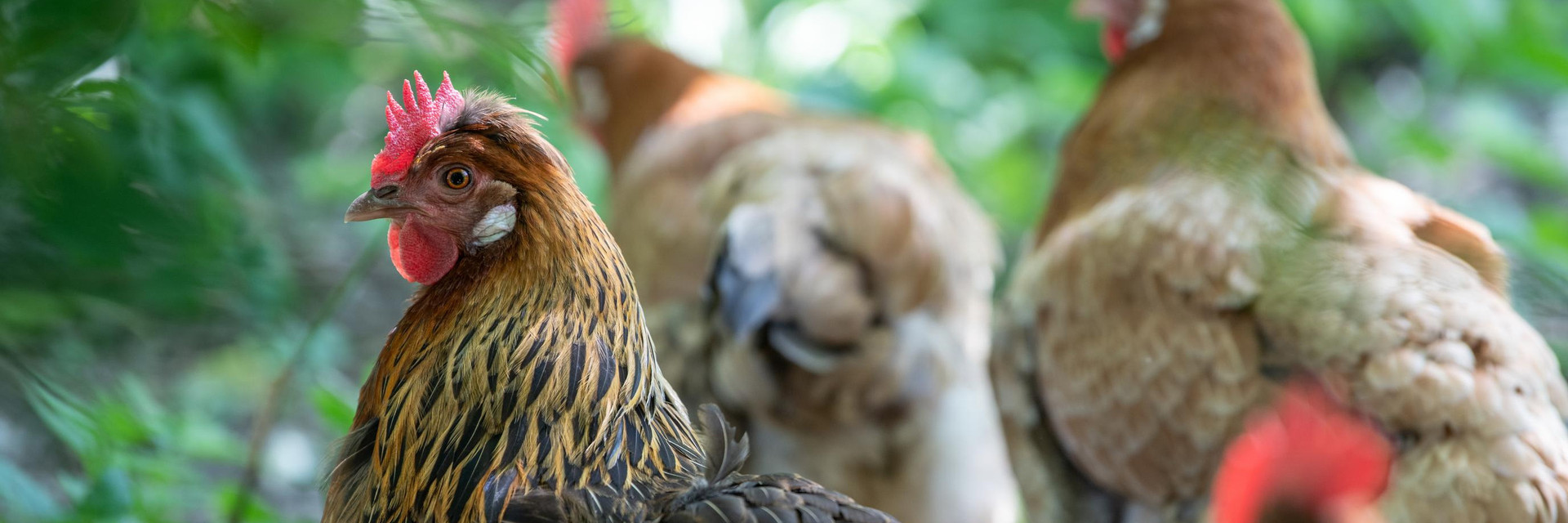
Climate Change and the Diet of Our Pets
Conscious pet feeding can have a positive effect on the climate
We know that dietary choices for both humans and pets, can have a significant impact on environmental sustainability. Compared to a plant-based diet, a meat-based diet requires more farm animals, more energy, more land use, and water, and has greater environmental impacts in the form of more emissions and waste. If we keep animals as companions, that need a meat-based diet, and if there are no affordable alternatives, pet owners should consider how to counteract their pet’s diet-related footprint, as part of their own contribution to helping to reduce climate change.
What we can do
- Do not feed high-quality meat: High-quality meat suitable for human consumption, requires the rearing of more farm animals, resulting in more animal suffering, and greenhouse gas emissions. In addition, this type of food does not necessarily make your pet happier and/or healthier and is not essential to your dog’s or cat’s diet. Dog or cat food that contains (legally defined) kitchen and food scraps, slaughterhouse by-products that people do not want to eat (e.g., tripe, tongue, etc), fish by-products, etc. are perfectly fine for pets to eat – as long as the nutrient ratio is complete, balanced, and the food quality is assured. Importantly, it also reduces food waste by using farm animal parts that humans do not consume.
- Feed your dog vegetarian food two to three times a week: Dogs are omnivores which means that they can eat both meat and vegetables. Dogs can therefore easily tolerate two to three vegetarian meals per week. However make sure that you provide balanced plant-based food rations. If you want to prepare them yourself, seek advice from an animal nutritional expert or a veterinarian who specialises in nutrition.
- Prepare your dog’s and cat’s food yourself: This approach can help to reduce packaging waste. It is important that your pet has a balanced and wholesome diet and that you get advice from an expert on what should be included.
- Feed your dog and cat the appropriate amounts of food: Only give your pet as much food as is necessary for their life stage. This contributes to buying less meat and helps to prevent obesity in your pet.
- Buy organic products: Many manufacturers of organic products are committed to protecting animal welfare and the environment by using healthy ingredients that are free of pesticides and chemicals. Ensure that you carry out research to find the best organic products for your pet, animal welfare and the environment.
- Buy food seasonally and regionally: Buy vegetables and fruits from your region – also for feeding your pets (e.g., a carrot for your dog as a healthy alternative to raw hide dog chews which may not be the best choice for your dog) and only buy what is currently in season; as a result, less food will then need to be imported or transported over long distances to shops and supermarkets.
- Eat less meat yourself: Reducing meat consumption while observing an overall healthy diet helps to not only maintain your health but also a healthy environment as well as reduce animal suffering.
Source
Fraser-Miller SJ, Rooney JS, Gordon KC, Bunt CR, Haley JM. Feeding the team: Analysis of a Spratt’s dog cake from Antarctica. Polar Record. 2021 [accessed 2021 Dec 13];57. https://www.cambridge.org/core/journals/polar-record/article/abs/feeding-the-team-analysis-of-a-spratts-dog-cake-from-antarctica/96E07502DFE77AA5D85F535C6B45D635. doi:10.1017/S0032247421000103
Couture L. The History of Canned Food. :33.The History of Canned Food (jwu.edu)
Okin GS. Environmental impacts of food consumption by dogs and cats. PLOS ONE. 2017;12(8):e 0181301. doi: 10.1371/journal.pone.0181301
DACVN CRH VMD, MS. A big pawprint: The environmental impact of pet food. Clinical Nutrition Service at Cummings School. 2018 [accessed 2021 Oct 26]. https://vetnutrition.tufts.edu/2018/02/petfood_sustainability/
The right plant-based diet for you. Harvard Health. 2018 Jan 1 [accessed 2021 Oct 26]. https://www.health.harvard.edu/staying-healthy/the-right-plant-based-diet-for-you
Frequently Asked Questions. ACVN. [accessed 2021 Oct 26]. https://acvn.org/frequently-asked-questions/
Tierische Nebenerzeugnisse. Hundefutter-Berater. [accessed 2021 Dec 13]. https://www.hundefutter-berater.de/tierische-nebenerzeugnisse/
Couture L. The History of Canned Food. :33.The History of Canned Food (jwu.edu)
Okin GS. Environmental impacts of food consumption by dogs and cats. PLOS ONE. 2017;12(8):e 0181301. doi: 10.1371/journal.pone.0181301
DACVN CRH VMD, MS. A big pawprint: The environmental impact of pet food. Clinical Nutrition Service at Cummings School. 2018 [accessed 2021 Oct 26]. https://vetnutrition.tufts.edu/2018/02/petfood_sustainability/
The right plant-based diet for you. Harvard Health. 2018 Jan 1 [accessed 2021 Oct 26]. https://www.health.harvard.edu/staying-healthy/the-right-plant-based-diet-for-you
Frequently Asked Questions. ACVN. [accessed 2021 Oct 26]. https://acvn.org/frequently-asked-questions/
Tierische Nebenerzeugnisse. Hundefutter-Berater. [accessed 2021 Dec 13]. https://www.hundefutter-berater.de/tierische-nebenerzeugnisse/

